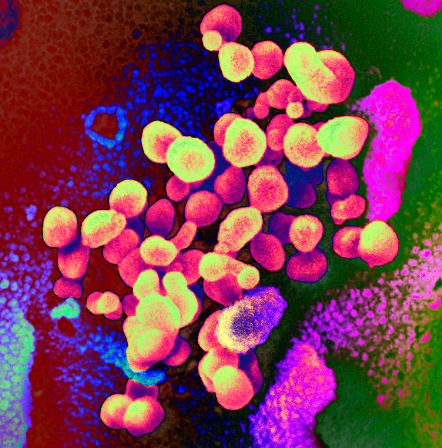Caution urged on new strain
 The world is reacting to the emergence of a new coronavirus variant.
The world is reacting to the emergence of a new coronavirus variant.
A new strain of the SARS-CoV-2 virus, identified as variant B.1.1.529, has been declared a ‘variant of concern’ by the World Health Organization and assigned the Greek letter Omicron.
The Omicron variant has a number of mutations, some of which are considered concerning.
Preliminary evidence suggests an increased risk of reinfection with this variant compared to previous strains. The number of Omicron cases is increasing around the world.
Current SARS-CoV-2 PCR diagnostics can detect this variant.
There is no evidence for any clinical differences in symptoms or disease severity in the Omicron strain yet.
Several labs have indicated that for one widely used PCR test, one of the three target genes is not detected (called S gene dropout or S gene target failure) and this test can therefore be used as marker for this variant, pending sequencing confirmation.
Using this approach, the Omicron variant has been detected at faster rates than previous surges in infection, suggesting that this variant may have a growth advantage.
The extent to which vaccines are compromised in preventing Omicron infections is unclear at this point.
However, the vaccines are likely to remain effective for the prevention of severe COVID,as they also induce a T-cell response against a diverse set of epitopes.
The Omicron variant has certain mutations that have not been observed in this combination before, including a spike protein alone that has over 30 mutations. Most of the current vaccines target spike proteins.
Some of the genetic changes have been seen in other variants and are known to affect transmissibility or allow immune evasion, but many of the changes have not been studied yet.
It is too early to tell whether Omicron is transmitted more efficiently than previously prevailing variants of concern.
COVID-19 is worse for elderly and chronically ill individuals, but the people who tend to be exposed first are younger, more mobile and usually healthy people. So, it may be some time before the new strain spreads far enough for its effects, in terms of disease severity, to be assessed.
Experts say that widespread vaccination and non-pharmaceutical interventions remain two of the best measures to help the healthcare system cope with the coming wave.








 Print
Print